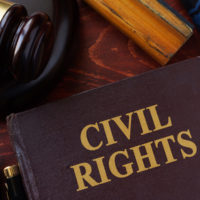Judge Temporarily Blocks Florida Law Eliminating Ex-Felon’s Right to Vote Due to Outstanding Fees

In late October, a Florida judge temporarily blocked the new law that prevents ex-convicts from voting in the state until they have paid all fines fees and restitution; a law that has been called a “poll tax” by a number of civil rights advocates. According to the judge, the law could very well be found to be unconstitutional; and Florida cannot legally deny the restoration of an ex-felon’s right to vote simply because they do not have the financial resources to pay various obligations; thus warranting a preliminary injunction being put in place until the merits of the case can be addressed in April. The decision is expected to affect approximately 1.5 million former felons.
In addition to blocking the new law, the judge dictated the Florida must establish a way for ex-felons who are eligible – pursuant to Amendment 4 passed by voters last fall – to register to vote if they are genuinely unable to pay their fees and restitution.
The Civil Rights Arguments & Decision in Case
Civil rights specifically argued that the law violated the 24th Amendment to the U.S. Constitution, which prohibits denying the right to vote in an election for failure to pay any tax. The judge specified that the states have the right to deny voting privileges to those who can afford to pay fines and other court costs (but who chose not to), however, Florida cannot restore a former felon’s right to vote simply because the felon cannot pay legal debts. In fact, the 11th Circuit Court of Appeals already decided that this was the case in 2005 involving a Florida felon who was unable to pay restitution.
Still, the state has the right to investigate whether the former felon’s claim that they cannot pay the fees is legitimate, as well as establish a specific process for how voting rights will be restored. Therefore, the judge indicated that those plaintiffs who brought the case can seek to regain their rights by proving that they are unable to pay off these debts.
Next Steps
The state now has the option of challenging the injunction at the Florida Supreme Court level or simply waiting until the merits of the case are decided at the federal level in April. The judge’s decision may have left yet another option open to the state, however, as he enumerated a number of rights retained by the state to limit voting rights, and specified that the issue here was the fact that “the state’s only reason for denying the vote is failure to pay an amount that the plaintiff is genuinely unable to pay.” In other words, it is possible that the state will seek to pass a new law, or put in place a number of bureaucratic hurdles that still interfere with these rights, but do not do so only to collect fees that ex-felons cannot afford to pay.
Contact Our Orlando Civil Rights Attorneys
The decision is a critical step towards ensuring that the state legislature cannot impede citizens’ voting rights simply because they have previous convictions. Still, there is no question that the state will continue to seek to limit voting rights for political reasons.
If you live in Florida and your civil rights have been violated by another party, contact our Orlando civil rights attorneys at the Baez Law Firm today to find out how we can help.
Resource:
foxnews.com/us/florida-judge-temporarily-blocks-law-limiting-ex-convicts-right-to-vote-in-state
https://www.baezlawfirm.com/civil-rights-lawsuit-filed-against-floridas-ban-on-sanctuary-cities/
